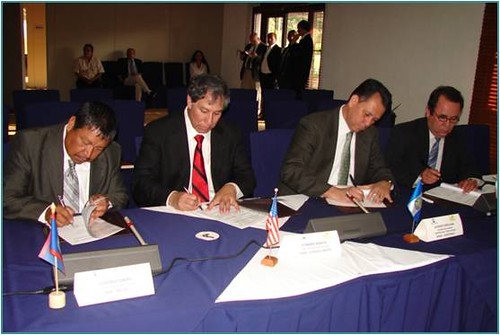On my recent trip to Guatemala, I had the honor and pleasure to spend some quality time with my counterpart from Mexico, Dr. Enrique Sanchez Cruz and the Mexican Secretary of Agriculture, Francisco Mayorga.
We were in Guatemala to attend the MOSCAMED Med Fly Commission meeting and to sign an agreement between Mexico, Belize, Guatemala and the United States to continue the MOSCAMED program. The program is a cooperative effort with a focus on maintaining a barrier for the med fly pest in Central America through the production of sterile flies and the development of natural parasites and organic bait sprays.

The world-renowned El Pino and San Miguel Petapa Med Fly Rearing facilities located in Guatemala provide over 900 million sterile flies weekly with shipments of over 200 million sterile flies going to the U.S. each week.
I wanted to share the MOSCAMED story with our stakeholders because of its impact on helping this Administration meet our priority of supporting rural America and increasing agricultural exports.
Maintaining a med fly barrier in Central America protects our multibillion dollar fruit and vegetable industry, and allows us to maintain and expand market share in domestic and international markets.
I want to especially thank the APHIS team in Guatemala for their dedication to the program. They are truly unsung heroes committed to helping rural America and maintaining our position in the international arena.
I also want to acknowledge the excellent trade relationship that the United States has with Mexico, our neighbor to the south. We share a common border and a common culture, as well as a commitment to use sound science-based and internationally supported decisions to protect our mutual countries from animal and plant pests and diseases. This relationship is critical for both economies.




